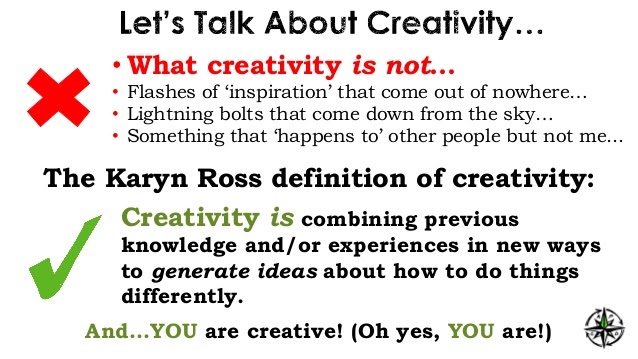
3 Essential Customer Service Skills to Prep Agents for the Future
Today, bots deliver food, offer health care services, farm our veggies and even drive our cars. No, we’re not living in a sci-fi movie. And, no, you’re not about to lose your job to a robot. Don’t worry. But, as technology shifts, it’s important to evaluate how automation impacts the workforce. Inevitably, the roles humans take on and the tasks robots take over will shift how we work and what skills your customer service employees will need to learn to adapt.
The World Economic Forum’s latest Future of Jobs Report predicted that all industries should expect gaps and changes in the skills employees need for work. The report predicts that no less than 54% of all employees will need re-skilling or upskilling by the end of 2022.
[Read Next:] Coaching and Training Action Items to Inspire your Customer Service Training Program
As a manager, you know the training game in your call center. Training is vital for productive growth, employee engagement, and a successful customer experience. To keep up with changes in automation and our increasingly digital workplace, coach your agents in the skills they need to keep up with the future of work. You’re shaping employees not only for their current role as an agent or supervisor but to take their customer service skills to future jobs and careers, too.
Customer service agents need both soft skills and hard technical skills to keep up with the future of the workforce and deliver the best customer experience in your call center. Let’s consider some of the most essential skills your agents need and how you can coach them to success.
First, what’s changing in call centers today?
Before diving into a coaching playbook, it’s important you know what changes are coming so you know how to best upskill your employees.
Customer experience is a primary investment for companies planning for the future. Delivering a good customer experience is everything — I mean everything. When you offer a top-of-the-line customer experience, customers spend more. In fact, 86% of buyers are willing to spend more cash for a better experience. We know this is true as customers ourselves.
In what circumstances will you put up with bad service repeatedly when you can get better service for the same product elsewhere? (Hint: there isn’t one).
So, how does your customer experience differentiate you from your competitors? One way to up your game is with omnichannel communication. According to PwC’s 2020 report, the number of companies investing in the omnichannel experience has jumped from 20% to more than 80%.
Automation and digital tools are shaping how customers and agents interact. Digital transformation is accelerating following the COVID-19 pandemic. And, automation and self-service tools are even more of a priority for customer service business leaders in a post-covid world.
As the industry propels forward, your team needs to be ready to keep up. No bot can replace the human skills your agents offer. Consider these soft skills your agents need to thrive and deliver outstanding customer service in the future.
[Read Next]: Four Steps Toward a Call Center Training Program that Works for You and Your Agents
Coaching and Upskilling Agents Toward 3 Essential Customer Service Skills
Robots are no replacement for humans. Your agents bring certain skills to your customers that are critical for building loyal customer relationships. Here are some essential soft skills every customer service agent needs, plus how you can coach them to upskill your agents.
1. Empathy
Empathy is a necessary skill for a customer service agent to have. It’s hard to make a list of customer service skills without adding it to the list. But, what is empathy? Empathy is the ability to understand another person’s emotions and to understand their point of view. In other words, it’s when an agent can put themselves in the customer’s shoes.
Let me play out a scenario from my own customer service experience:
I used to work in a call center for a moving company. The phone calls we got and the calls we had to make weren’t that pleasant. One morning, I had the opening shift and had to, first thing in the morning, call a customer with some pretty disappointing news: “I’m sorry ma’am, but your movers are going to be 3 hours late to your move…” Yikes…
A simple apology doesn’t typically cut it. But, when you can share the customer’s frustration, or share a story of similar pain, relationships form. I continued the call by sharing my own story of a total moving fail and let the customer vent to me in frustration. By the end, the customer was less stressed and more willing to wait the additional 3 hours.
Salesforce reports that 70% of buying experiences are influenced by how the customer feels they’re treated. It’s not always about whether the problem was solved, if there was a refund, or how much time was spent — at least, not entirely. In this case, the bottom line wasn’t about finances, but about emotion. If your agents can share your customer’s emotions, genuinely, they’re lightyears ahead of any old robot.
Coaching for Empathy:
Guaranteed, you have some amazing agents in your call center who are empathic-pros. As you work on upskilling less experienced agents, use the work of high-performing employees to illustrate what empathy looks like on a customer call. Use speech analytics to search through transcribed calls and identify exactly how your best agents turn a difficult call into a good customer outcome.
You’ll likely notice repeated words and phrases that show empathy and put the customer at ease. Once you’ve offered some examples of what empathy looks like, pair up your agents to role play similar interactions. Have one employee play the customer, the other the agent, and give them a problem to solve. After, talk as a group about how empathy was portrayed, what worked, and what didn’t.
[Read Next]: Manage a Remote Team with Your Agents in Mind: Lead with Empathy to Boost your Customer Experience
2. Creativity
Humans are uniquely creative, capable of discovering new ideas, and of finding solutions to problems that seem, well, unsolvable. Customer service agents need creative skills to handle any problem that comes their way. Creativity empowers your agents to take on tasks that seem tricky at first..
Whether it’s dealing with a customer or tackling a difficult technical task in your call center software, customer service agents need to think outside the box. Creative reps use the resources they have at hand to meet the customer’s needs in an unanticipated way.
Coaching for Creativity:
Creativity may seem like a skill your agents are either born with or born without. But, believe it or not, it’s possible to encourage creative thinking in your agents through training. Agents may not take creative risks unless they know how.
In her book, How to Coach for Creativity and Service Excellence: A Lean Coaching Workbook, author Karyn Ross explores this idea.
In a webinar, Ross explained that creativity is not only an “aha” moment. Creativity is bolstered when your agents have tools, knowledge, and experience at their disposal to find creative solutions.

Train agents on the ins and outs of your call center software, your product, and your internal processes. Then, when employees reach a sticky situation or a difficult problem with a customer, they have what they need to consider innovative ways to help your customers. Use inline feedback to highlight moments they could’ve been more creative with the tools available, and prompt agents with questions to help them think through clever solutions to tricky customer problems.
3. Flexibility
Flexibility is key — not just because it helps to be flexible day to day in a call center. It’s a skill that your customer service agents can take to every job. Adapting is the name of the game in our digital workforce. If your agents can adapt from situation to situation, deal with new changes in products and processes, and quickly learn new technology, they’ll be more successful in any profession.
One of the most interesting characteristics of customer service roles is that the day-to-day responsibilities are often unpredictable. While some tasks might feel monotonous to your team, their are always conversations that shake things up. Your agents manage a variety of channels, navigate your CRM, track their metrics, and jump around your contact center platform. They’re dealing with unique questions, emotions, stories, and problems from every customer. Customer roadblocks and system errors don’t come with any warning and sometimes reps need to be flexible and adapt to unexpected situations.
[Read Next]: The Unique Set of Soft Skills Managers Need to Lead Well and Excel Beyond the Competition
When something important suddenly breaks, the call center agent is on the front line. Agents need to be ready to spring into action on a moment’s notice. And, especially when it comes to tech, customer service reps need flexibility to adapt to any digital changes coming down the road. Automation isn’t the only digital change transforming the workforce.
Coaching for Flexibility:
Flexibility, like creativity, is a skill that you can cultivate with the right tools. Train and coach agents consistently and frequently to encourage flexibility. Frequent coaching will help them react calmly when they’re confronted with blockers or challenges.
Offer agents an internal knowledge base so they can use free time to read up on changes as they happen in your company or within your team. Host quick, 30-minute “webinars” or record virtual seminars to educate agents on new updates to their technology or your company’s offerings. All you need is your laptop camera and a free recording tool to create your own training session.
Discuss how new trends will affect your work. Use training sessions as opportunities to learn from one another and figure out how to professionally develop to adapt to all the changes. When your employees know changes are coming ahead of time, they’re better prepared to adapt with them.
[Download Now]: Get Real about Upskilling Your Agents and Get Real About Coaching with These 7 Actionable Ways to Improve Your Coaching Skills

